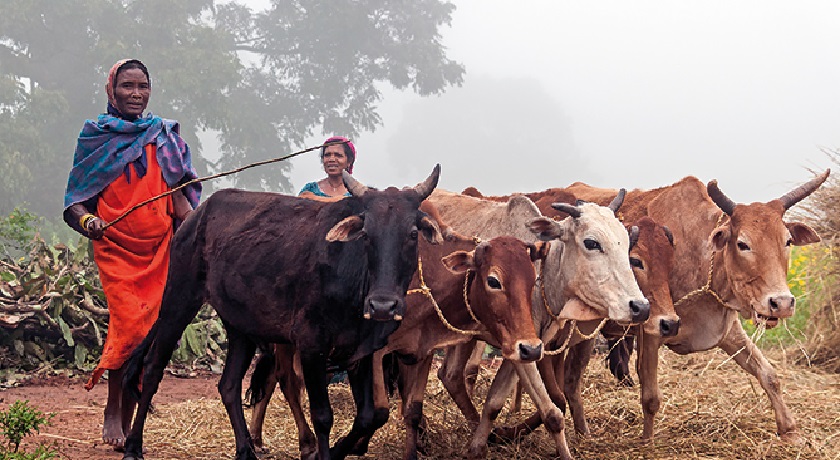 What’s so special about a baby in a cattle shed? asks Susan Durber
What’s so special about a baby in a cattle shed? asks Susan Durber
There is something utterly extraordinary that we celebrate at Christmas. But it is not, I think, that a baby was once born in a stable. There was a moment in my life, a short while ago, when it suddenly dawned on me that that’s not so very odd at all.
I was on a Christian Aid visit to India and staying in an ordinary home in a village. I was trying to get to sleep after a long but exciting day. I could hear the man of the house snoring through the thin partition wall. But, much clearer than him, I could also hear the sounds of the cattle from the shed that was right up against the bedroom I was sharing with several other people.
The cattle were so close that I could hear them breathing. They were so close that I could even distinguish them from each other. For the whole time of my stay in that household, I never noticed any smell from the cows. The moment it was necessary, their dung would be collected between two wooden boards and carried away in baskets to be used as fuel.
The pressed earth floor of the byre was constantly swept clean and the cows were washed down every day. It struck me that being born in that place would not have been an indignity at all. And it struck me that for most people in the world, living so close to animals, bedding down with cattle, using a manger for a bed would be not be striking or scandalous, but just ordinary.
The story of Jesus’ birth, in that setting, seemed just somehow typical of how life is – animals, babies, travellers, all just mixed up and no one thinking it odd or strange.
The extraordinary part of the story is not the setting at all – but the belief that somehow into this very ordinary and very normal human setting, it was God who was coming, God who was being born in human form. Neither Romans nor Greeks nor Jews had ever thought that divinity and humanity could be anything other than different from each other – separated and distinct.
The classical gods lived in their own separate world, and Moses knew that he couldn’t even look upon the face of God. Into that kind of thought world comes the Christian story – and a faith that says that ‘the word [of God] became flesh and lived among us’ – lived among human beings. The story doesn’t say what a shock that a baby could be born in a stable, but that God could be born in human flesh. Where we might think a stable would stink, there were many in the ancient world who thought that human beings all stink, that we’re unworthy to be called holy or sacred, not fit for God. Christianity says that’s not true – in fact, we are all holy, all blessed by God’s touch, all made in the image and likeness of God.
The word became flesh to hallow and bless all human life and to show us what has always been true if only we could have seen it, that all people are made in God’s image. What few believed in the ancient world, Christians began to believe – that human life is holy, beautiful, good and full of value and worth. This meant that no infant, ill or weak, should be exposed on a hillside and left to die (as any Roman would have done without a second thought), that no person should ever be enslaved to another, that even enemies should be loved and the poor blessed, and that all should be given the worth that God gives all humankind…
___
This is an extract from an article that was published in the December 2017 / January 2018 edition of Reform




